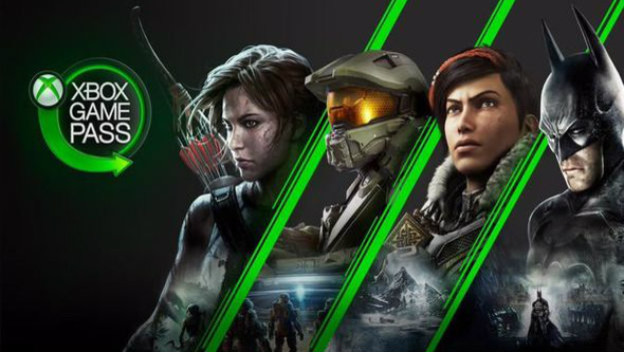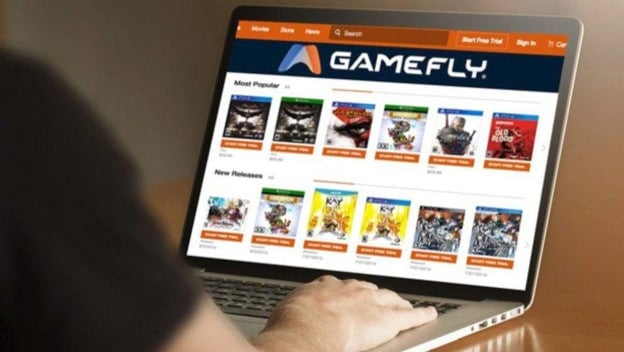Google Stadia is out in the wild for anyone willing to pay for a Stadia Pro membership. While it’s cool technology and for some users it works quite well, Google’s competitive, new service didn’t exactly hit the ground running. Beyond the whole internet infrastructure thing causing issues for a disproportionately large part of the country, one of the biggest issues or points of contention for people is the payment or ownership aspect. While it’s a streaming service, users will still need to pay for most games individually through Stadia’s storefront. That means the streaming itself is the service, but otherwise the idea here is Stadia is a platform proxy. To more general users, something like Stadia only works if it’s like Netflix. Other services, such as Xbox Game Pass, are much closer to the platonic ideal of what many gamers looking for service options have in mind.
But the biggest problem of all is, the thing everyone has in mind probably can’t happen. At least, not in the way everyone wants it and not anytime soon. “Netflix for games” is a common phrase, but it’s also a lofty dream that I don’t believe the current gaming industry can support. Just look at Netflix itself, the world of streaming services in general, the current gaming services available, and the business end of gaming. There is too much risk, too much excess, and not enough stability in the video game industry right now to even pretend a massive service of games is plausible. Individual, publisher-based services totally make sense and even exist right now, but those are only around to meet niche demands or soak up money from diehard fans.
In 2019, Netflix upped its streaming prices as demand for bandwidth only increased and net neutrality died. Netflix itself is only losing money and happens to be flush with venture capital. The Netflix Originals experiment is working in terms of online clout, but if you look at the numbers, you see Netflix often tossing piles of money at projects, seeing what sticks, cancelling shows after a couple seasons, and generally burning itself out. Meanwhile, more and more media license-holders moved away from Netflix and started their own services. Disney+ is the new hotness and, while things like Marvel and Star Wars will keep it necessary in many ways, this is only splintering the market further, raising costs and bringing the bubble closer to its bursting point.
Video game companies are not flush with cash in the way companies like Netflix and Uber are. They’re beyond the ability to run crazy experiments, throw money at creators, hemorrhage profits, and try again the next day. If a game doesn’t “meet expectations,” and most of them don’t despite selling millions, shareholders get mad and studios get shut down. People lose jobs. Games get cancelled. More people lose jobs. CEOs like Bobby Kotick do alright, but at a heavy cost. Meanwhile, publishers and developers are struggling to make blockbuster, AAA games both playable, high quality, and profitable beyond launch weekend. It isn’t working as well as anyone hopes.
Services like Xbox Game Pass are great, but the scope of that one in particular is limited. Day one releases are limited to first-party titles from Microsoft’s studios and a few smaller titles here and there. Third-party publishers are certainly participating, but are rotating their older content in and out of availability. There are likely deals happening to get these games on the service for a limited time, but Xbox Game Pass will never be a comprehensive library. It’s the same with PlayStation Now, and let’s not even start with Nintendo. The Super Nintendo stuff is cool, but it is a licensing nightmare just as much as modern games. Video games just don’t make enough money to begin with (enough is stretching the definition of the word there, I know).

For now, your best bet for affordable, regular access to video games is a service like GameFly. But even GameFly has problems of its own. You really have to play queue chess to get new games, and older games are only so available. Many titles just aren’t, due to scarcity, theft, and damage. It’s a nice service and quite reasonably priced, but it’s antiquated and relying on physical goods, the postal system, and supply. Buying games from GameFly is great though, as its sales are legendary. Anyway, a service with the selection of GameFly and the convenience of Netflix is simply unrealistic.
I would love for Stadia Pro to turn out well, with the available game library expanding on a month-by-month basis into a great collection. I would also love for Xbox Game Pass to expand dramatically and for services like it to land on other platforms with just as much quality and depth. But I just don’t see that happening any time soon. There is too much instability in the games industry as it is, and getting publishers and developers to cooperate on a scale that streaming services can’t even do anymore is… wishful thinking at best. Individual publisher services resembling Disney+ will likely continue to appear, but unless the media landscape in general shifts massively, you might want to temper your expectations.
